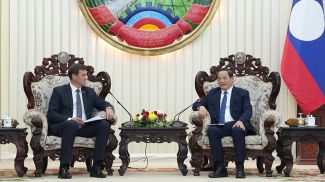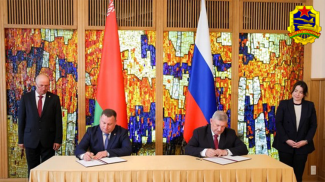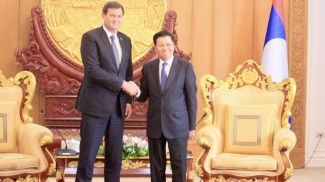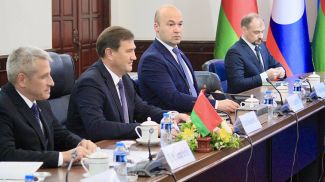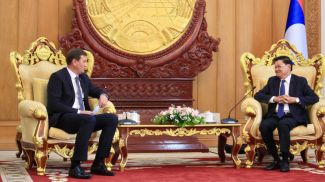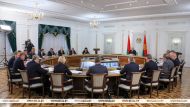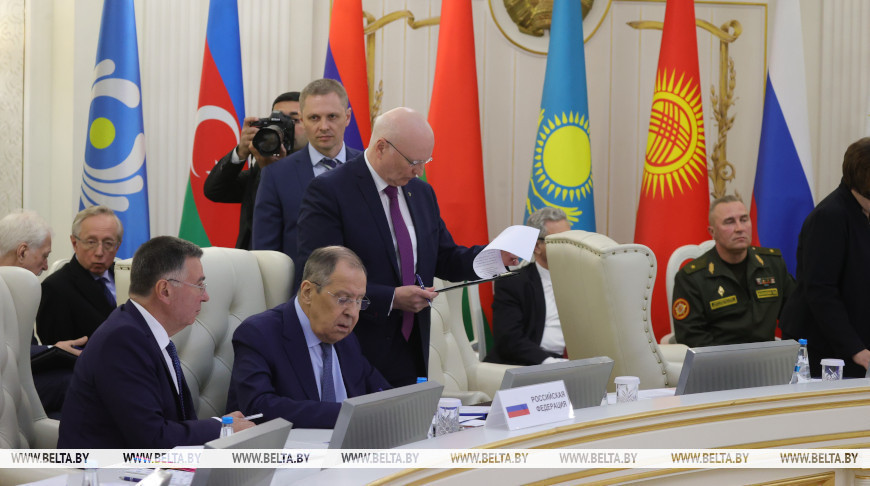
MINSK, 12 April (BelTA) - The strategic line taken by the Western countries to break up the CIS is doomed to failure, Russian Minister of Foreign Affairs Sergey Lavrov told the media after the CIS Foreign Ministers Council meeting in Minsk on 12 April, BelTA has learned.
The Russian foreign minister drew attention to the ongoing attempts of the West to interfere in the CIS affairs. “Everyone understands everything perfectly well,” Sergey Lavrov said about the reaction of his CIS colleagues to such attempts. The United States and its satellites are trying to intrude into every region of our common space, trying their best to undermine the agreements reached about the situation in the Caucasus, in particular in the South Caucasus, interfering the implementation of agreements which have been reached between Armenia and Azerbaijan with Russia’s assistance.
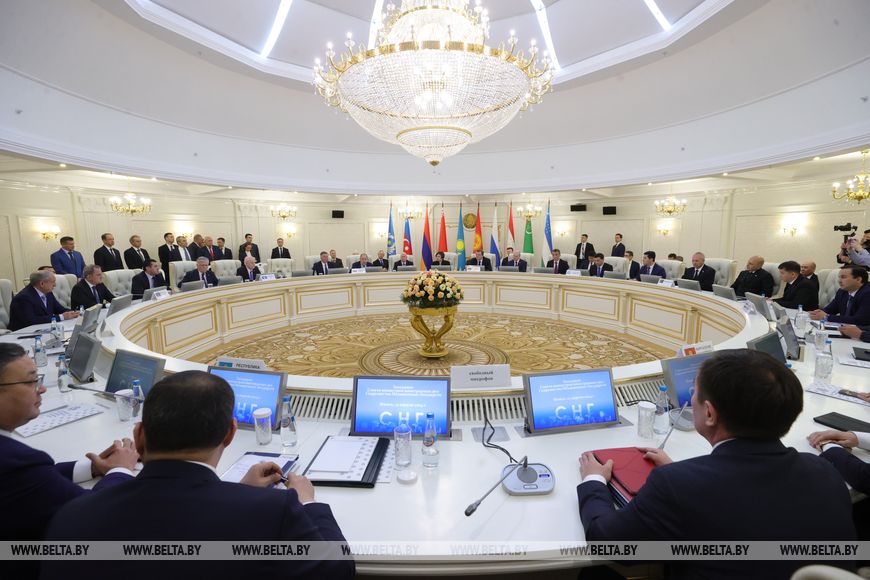
They are also trying to penetrate into Central Asia, creating various formats that are openly aimed against the Russian Federation. They publicly said: “We need to ensure the true sovereignty of the countries in the post-Soviet space, to ensure they come out of the shadow of the Russian Federation.” The same line is being pursued with regard to Moldova and in many other places.
Despite being under tremendous pressure the CIS countries remain committed to the basic principles of the Commonwealth, as well as the CSTO, SCO and the EAEU, Sergey Lavrov emphasized. “I am sure that in strategic terms the West's line is doomed to failure,” he said. “They can use blackmail, ultimatums, threats to force out some actions that do not help develop cooperation within the CIS. These are such one-off situations that do not predetermine the general movement towards getting rid of Western dictate. This is a historical process, and it concerns not only our space, but the global environment in general.”
Speaking about the CIS in its current form and the disintegrated Soviet Union, Sergey Lavrov gave a figurative comparison to the situation when a married couple separates after many years of living together and only then realizes the value of mutual ties and the need for mutual support: “It seems to me that a situation when after separation spouses keep good relations and even begin to value these relations more is something similar to what we are observing now [in the relations of the CIS countries]. The fact that almost all CIS countries [representatives of these countries at the CIS Foreign Ministers Council meeting in Minsk] spoke about the importance of this association emphasizes the new nature, level and quality of our relations - not in a single state, but within the Commonwealth. This word is not an empty sound, it reflects the essence of our association.”
“We are all convinced that the development of cooperation in the CIS format meets the interests of its participants,” the minister concluded.
The Russian foreign minister drew attention to the ongoing attempts of the West to interfere in the CIS affairs. “Everyone understands everything perfectly well,” Sergey Lavrov said about the reaction of his CIS colleagues to such attempts. The United States and its satellites are trying to intrude into every region of our common space, trying their best to undermine the agreements reached about the situation in the Caucasus, in particular in the South Caucasus, interfering the implementation of agreements which have been reached between Armenia and Azerbaijan with Russia’s assistance.
They are also trying to penetrate into Central Asia, creating various formats that are openly aimed against the Russian Federation. They publicly said: “We need to ensure the true sovereignty of the countries in the post-Soviet space, to ensure they come out of the shadow of the Russian Federation.” The same line is being pursued with regard to Moldova and in many other places.
Despite being under tremendous pressure the CIS countries remain committed to the basic principles of the Commonwealth, as well as the CSTO, SCO and the EAEU, Sergey Lavrov emphasized. “I am sure that in strategic terms the West's line is doomed to failure,” he said. “They can use blackmail, ultimatums, threats to force out some actions that do not help develop cooperation within the CIS. These are such one-off situations that do not predetermine the general movement towards getting rid of Western dictate. This is a historical process, and it concerns not only our space, but the global environment in general.”
Speaking about the CIS in its current form and the disintegrated Soviet Union, Sergey Lavrov gave a figurative comparison to the situation when a married couple separates after many years of living together and only then realizes the value of mutual ties and the need for mutual support: “It seems to me that a situation when after separation spouses keep good relations and even begin to value these relations more is something similar to what we are observing now [in the relations of the CIS countries]. The fact that almost all CIS countries [representatives of these countries at the CIS Foreign Ministers Council meeting in Minsk] spoke about the importance of this association emphasizes the new nature, level and quality of our relations - not in a single state, but within the Commonwealth. This word is not an empty sound, it reflects the essence of our association.”
“We are all convinced that the development of cooperation in the CIS format meets the interests of its participants,” the minister concluded.




